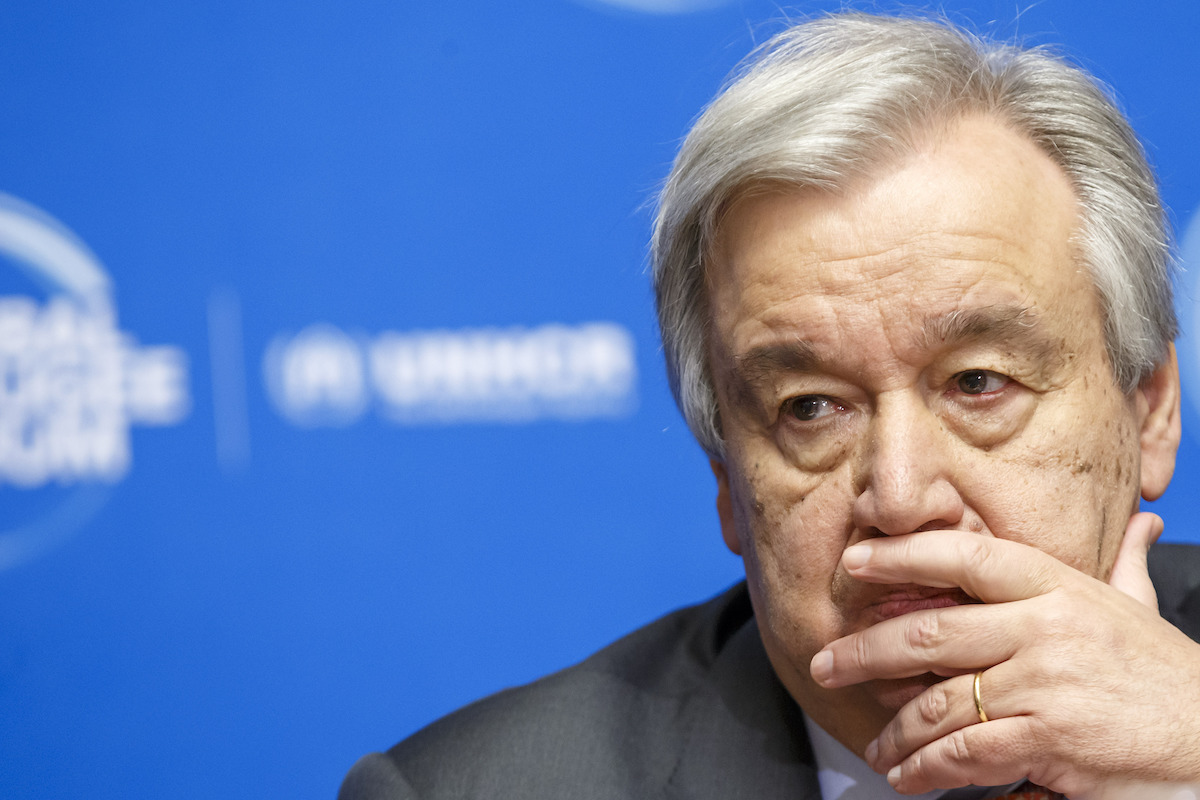

U.N. Secretary-General Antonio Guterres in Geneva, Switzerland, Tuesday, December 17, 2019. (Salvatore Di Nolfi/Keystone via AP)
By EDITH M. LEDERER Associated Press
UNITED NATIONS (AP) — The U.N. secretary-general says 2019 was the most violent year for former fighters from Colombia’s largest rebel group since it signed a peace deal with the government in 2016.
Antonio Guterres said in a report to the U.N. Security Council circulated Thursday that 77 members of the former rebel group, the Revolutionary Armed Forces of Colombia or FARC, were killed up until December 26, compared with 65 in 2018 and 31 in 2017.
In addition, he said, 14 ex-FARC combatants disappeared and 29 were targets of attempted homicides.
Secretary-General Guterres reiterated his calls for more effective measures to protect former combatants and their families, saying they face “particular vulnerabilities.”
The U.N. chief also called again for more effective measures to protect social leaders, human rights defenders and people involved in implementing the peace agreement, saying violence against them is continuing.
He said the “violence remains concentrated in the rural areas of Cauca, Narino, Antioquia, Caqueta and Norte de Santander Departments where there is a convergence of weak state presence, illegal economies and poverty.”
The attorney general’s office attributes the majority of these killings “to illegal armed groups and criminal organizations and their support networks,” Guterres said.
The secretary-general said: “A public policy for the dismantling of illegal armed groups and criminal organizations and their support networks, as called for in the peace agreement, is essential to curb the violence that these groups inflict upon vulnerable communities.”
On a more optimistic note, Guterres said that “three years after the signing of the peace agreement, Colombians are striving to write a new chapter of peace-building, reconciliation and hope.”
“Thousands of former combatants continue their reintegration into civilian life while Colombian society continues to show inspiring signs that it is willing to embrace them,” he said.
Guterres pointed to more active participation by victims in transitional justice bodies including truth and justice hearings and the strong participation and comparatively peaceful local and departmental elections in October—the first since the peace agreement.
This is evidence of the gradual advance “towards a more inclusive and democratic Colombia,” the secretary-general said.


